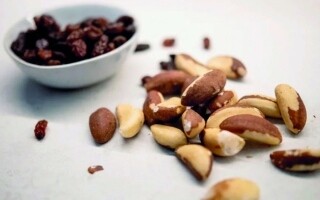
Recent research revealed that a mineral found in Brazil nuts may help in the search for new treatment methods to prevent the spread of breast cancer throughout the body. Triple-negative breast cancer (TNBC) is a subtype of breast cancer that is unresponsive to drugs targeting estrogen receptors or HER2 growth factor receptors. This type of cancer develops quickly and tends to spread beyond the breast by the time of diagnosis; however, it can often be controlled with medications and surgery if it hasn’t spread to other parts of the body, where treatment may be ineffective.
Research financed by the British Cancer Research Foundation indicated that reducing selenium's antioxidant effect (which is found in various food additives, such as nuts, meats, mushrooms, and seafood) could be key to controlling this form of cancer. It was suggested that selenium, one of the main antioxidants, plays a role in combating cancer cells. Currently, there are limited methods to manage TNBC, and finding a new approach to its prevention may become a lifesaver.
However, the research found that cancer cells strongly need selenium, especially when cells are dispersed, unlike in dense cell colonies. The scoping process of TNBC cells produces fatty molecules that contain oleic acid, usually present in olive oil, which protects them from cell death, referred to as iron deficiency cells, related to selenium deficiency.
A study published in EMBO Molecular Medicine demonstrated that when TNBC cells do not unite together, as they should, they are unable to survive without selenium. When researchers from the Institute of Cancer Research in Great Britain in Glasgow examined selenium intake in these dispersed cancer cells, they discovered that they could be destroyed, especially those found in bloodstream and aiming towards dissemination in lungs.
These findings raise hopes for the development of new treatment methods that could help in preventing the spread of cancer. Dr. Saverio Tardito, leading the research from the Institute of Cancer Research in Great Britain in Glasgow and the Centre for Cancer Research at the Medical University of Vienna, said: 'We need selenium for survival, hence, its exclusion from our diet is not an option. However, if we find a treatment interacting with the affected TNBC cells of this mineral, we may prevent the spread of this cancer to other parts of the body.' He also added: 'Breast cancer itself is usually not fatal, and it is often successfully treated with medications or surgeries. However, once the cancer spreads, it becomes difficult to fight it.'











